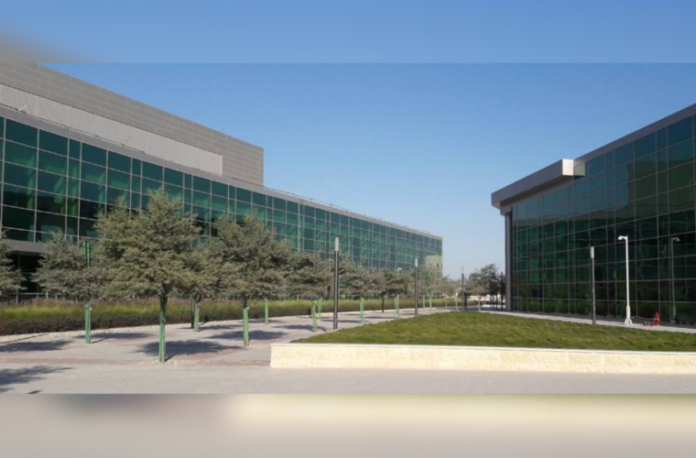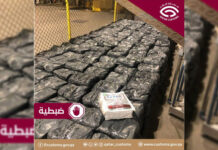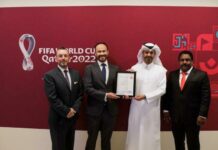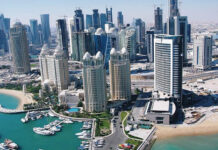Qatar Environment and Energy Research Institute (QEERI), affiliated with Hamad Bin Khalifa University (HBKU), announced the commission of a new test facility to examine the interaction of hydrogen with metals to enhance its capabilities in the corrosion research field.
The new facility, established under the umbrella of the Institute’s Corrosion Center, will contribute to the development of predictive models based on prior knowledge. These models will help major industrial organizations in Qatar address material safety challenges to promote the hydrogen economy.
The new facility allows the institute’s scientists to study the effect of hydrogen on the mechanical properties of materials at different length scales from nanometers to centimetres.
Hydrogen is the smallest and most abundant atom in the universe. The small size of the atom facilitates the possibility of introducing metals and moving in the crystal structure of the metal at ambient temperature. This results in hydrogen embrittlement, the local enrichment of hydrogen in the metal microstructure, which leads to unexpected cracking and failure of the metal components that come into contact with the hydrogen.
In turn, Hydrogen embrittlement leads to obstacles in the transition process from fossil fuels to renewable energy, especially with the development of the energy system, and the emergence of hydrogen as an important component of energy.
Principal Scientist at the Center for Corrosion and Materials and lead of the Hydrogen Project, Dr. Afrooz Barnoush, said in a statement on Sunday that QEERI is involved in several projects examining this challenge. This includes additively fabricated and 3D-printed alloys for use in conditions where the risk of hydrogen embrittlement is high. Additive manufacturing provides capabilities for specially designed microstructures of metals to make them more resistant to hydrogen embrittlement. However, finding the right microstructure and building strategies needed to implement these optimal microstructures requires extensive research work. For this reason, the institute is also collaborating with leading industrial companies in Qatar, and globally.
Since its launch in 2019, the QEERI centre has been committed to engaging and working closely with stakeholders in Qatar to identify industrial needs and provide technical and research support in the field of corrosion and materials engineering.
For her part, Senior Research Director of the Corrosion Center Dr. Hanan Farhat explained that the centre’s approach is to transform each corrosion challenge into a research, development and innovation project, where scientific knowledge is combined with industrial expertise to provide specialized solutions and produce more knowledge, science, and technology.
She said that the materials for the hydrogen program have already attracted interest and funding from stakeholders in the sector. She added that energy transition is inevitable. The issue of safe infrastructure for hydrogen production, transportation, and storage is essential for sustainable production.
In turn, QEERI’s executive director, Marc Vermeersch, indicated that QEERI is working to meet the challenges related to the energy transition, at all levels. He indicated that erosion is a major concern for the country’s major industries and the sustainability of urban and industrial infrastructure.
He added that technological and scientific innovation is essential, and efforts to enhance corrosion capabilities through the introduction of new equipment and trained personnel enable us to ensure our ability to provide more feasible and effective economic solutions to Qatar and other countries.
In addition to its research activities, the Institute’s Corrosion Center supports industrial enterprises by providing technical advice and services, including fitness-to-service assessment, corrosion risk assessment, root cause failure analysis, corrosion management planning, qualification of corrosion inhibitors, and advice on material selection.
Source and cover image credit: QNA
Follow us on our social media channels:
@ILQlive
@ILQlive
@ILoveQtr
ILoveQatar









